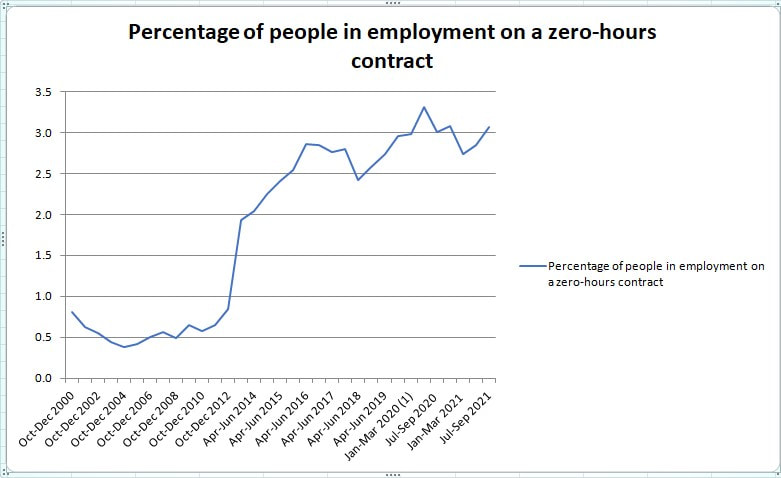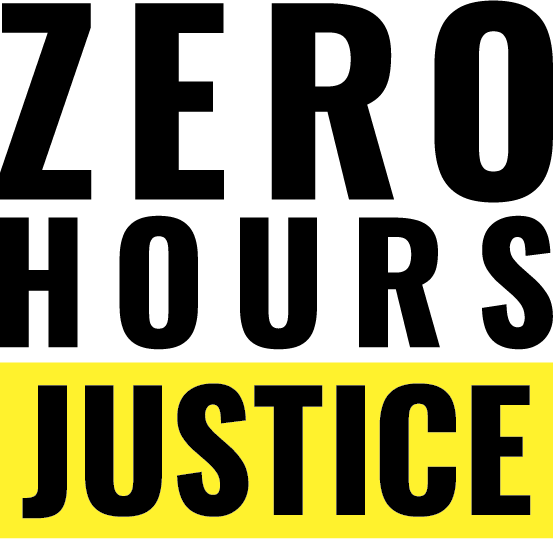|
By Pravin Jeyaraj The Chartered Institute for Personnel and Development (CIPD) has released their own data analysis, from which it has concluded that employment in general is becoming more secure, with only "pockets of insecurity". According to the CIPD's analysis, the proportion of people working on variable hours, working part-time involuntarily or want to work more hours has fallen since 2010. However, according to the latest figures from the Office for National Statistics (ONS), the proportion of people in employment who are zero hours contracts has actually increased from 0.6% for the period October to December 2010 to 3.1% for the period July to September 2021. Whilst we accept that this is statistically a small proportion of people in employment, it still amounts to almost one million people on zero hours contracts. Whilst the majority of people on zero hours contracts have told the ONS that they do not want to do more hours, there are still almost a quarter (23%) who say they are underemployed and either want an extra job (3.1%), another job with longer hours (5.2%) or more hours in their current job (15.1%). We are not opposed to zero hours contracts, where people have the choice between that and a different type of working arrangement. However, just because the majority of zero hours workers say they do not want more hours, that does not mean that employers are using zero hours contracts appropriately. According to the ONS, more than a third (33.7%) of people on zero hours contracts say that they work full-time hours and, for those in one job on a zero hours contract, the average number of hours per week is 25.5. The whole argument put forward in favour of zero hours contracts is that it allows employers to match staffing levels to fluctuating business demand. If there is enough work for someone to be working on a full-time basis or for a weekly average number of hours that amounts to part-time work, we would question why that person needs to be on a zero hours contract. There is clearly enough work to warrant giving them an a permanent or fixed term employment contract. Our view is that employers should regularly monitor hours actually worked and, where a regular working pattern develops, they should offer a fixed or guaranteed hours arrangement. The CIPD also found that 64.5% of people on zero hours contracts are actually in permanent employment, so they should have full employment rights, subject to continuity of service. In theory, that is correct. The problem is that continuity of service depends on there being no periods of non-work of at least a week. So, it is quite possible for someone to be employed with an employer for two years or more, but the number of weeks they have actually worked - apart from annual leave and sick leave - does not amount to two years. The use of zero hours contracts may be relativey low, compared to more secure working arrangements, but the "pockets of insecurity" identified by the CIPD are still quite deep.
Comments are closed.
|
contactFor press enquiries or permission to reuse content, please contact: Archives
June 2024
CATEGORIES
All
|
|
Company No: 12417909 Registered Office: 38 Coney Street, York, Y01 9ND
|


 RSS Feed
RSS Feed


